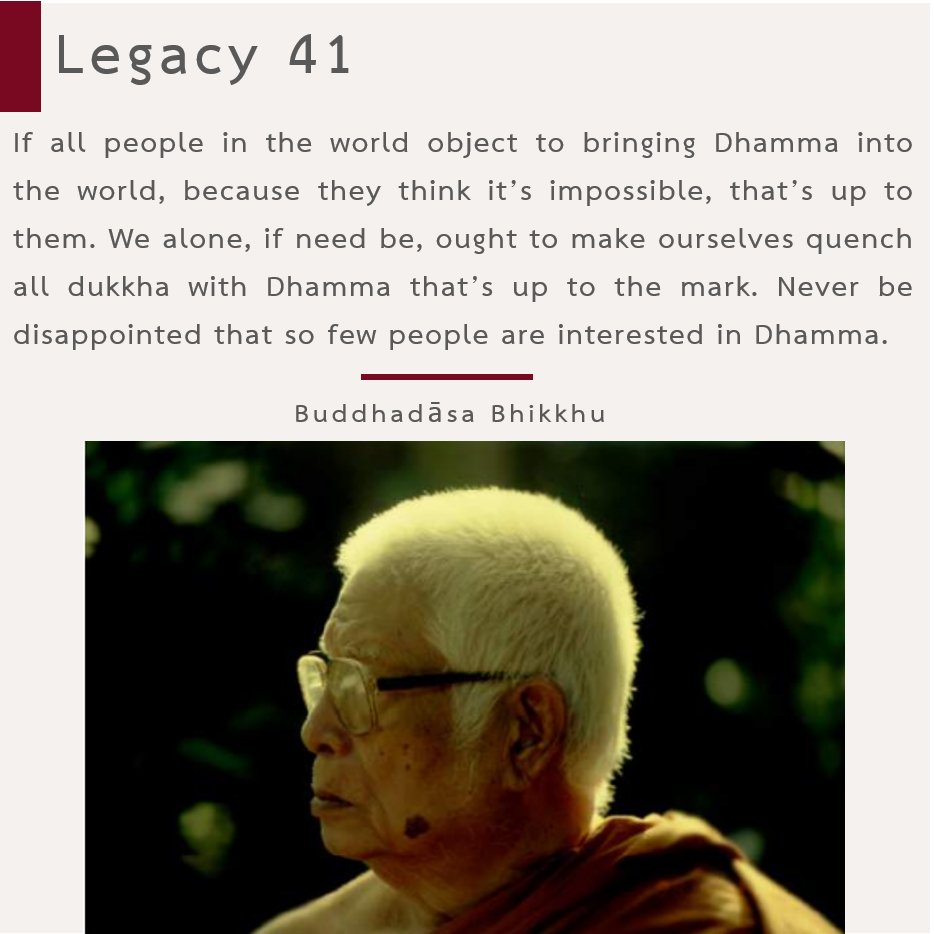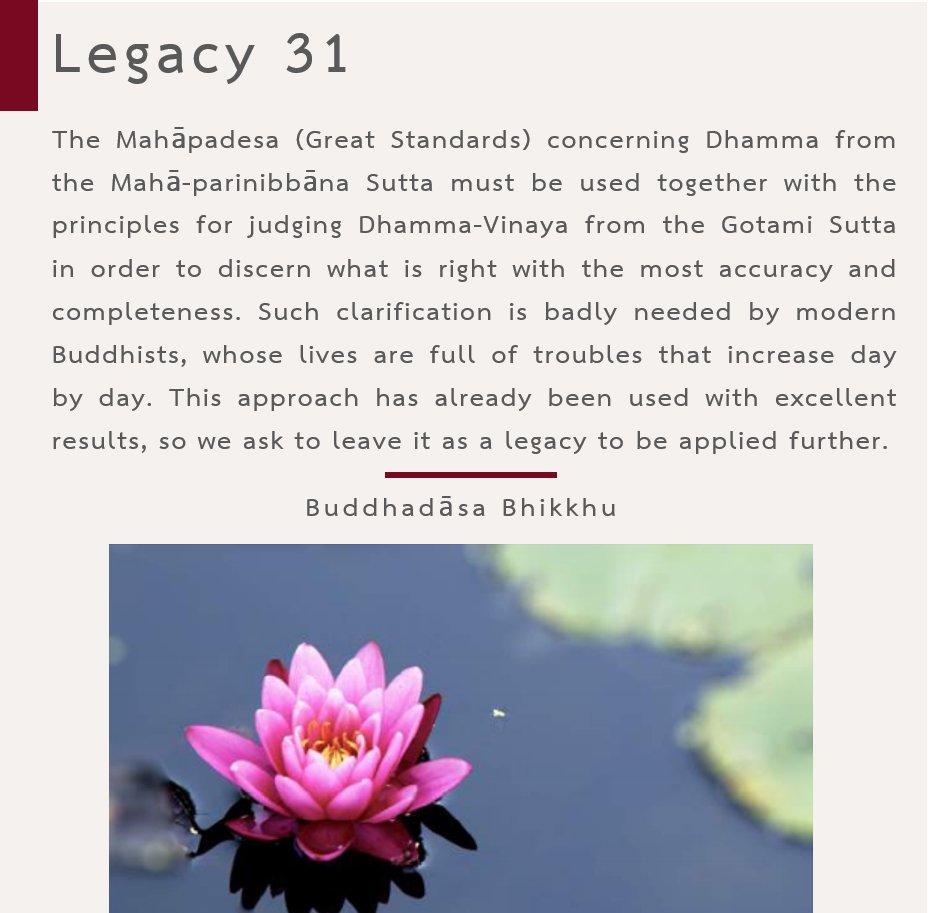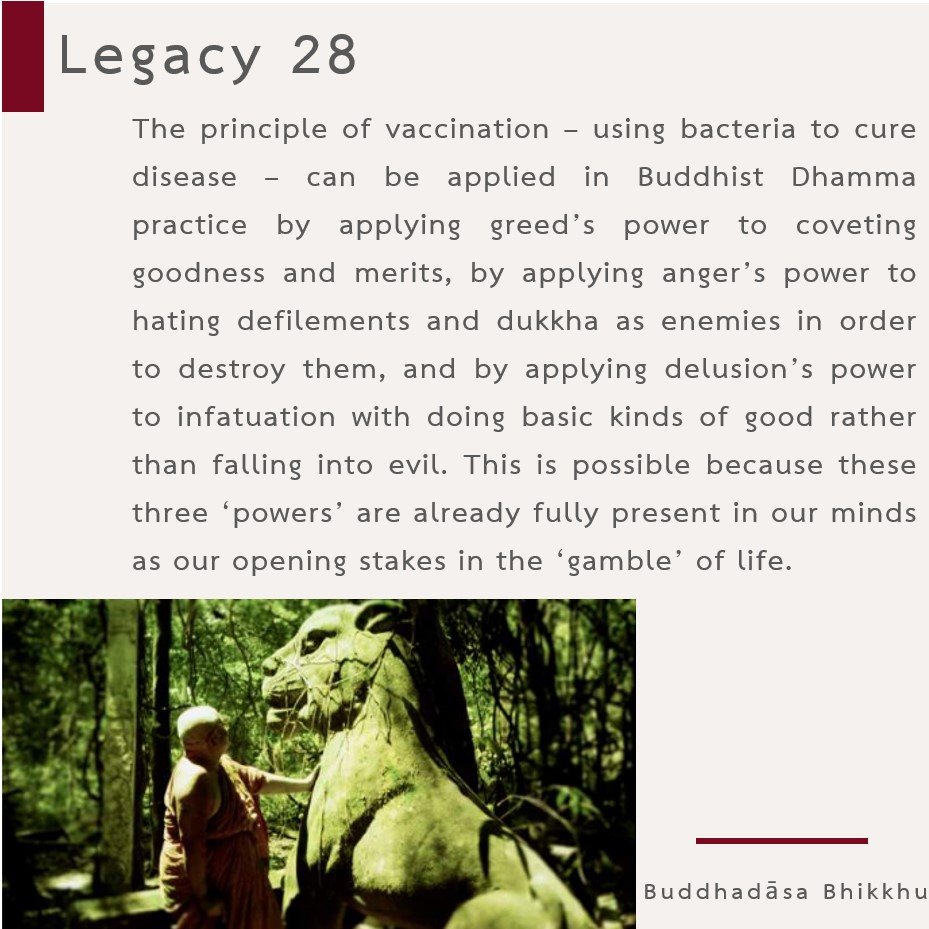

Legacy 41
If all people in the world object to bringing Dhamma into the world, because they think it’s impossible, that’s up to them. We alone, if need be, ought to make ourselves quench all dukkha with Dhamma that’s up to the mark. Never be disappointed that so few people are interested in Dhamma.

Legacy 40
May we all cherish one special aim, that whether sooner or later, there will be an era in which the world is perfect in Dhamma through everyone performing their duties, through everyone being clearly mindful in their hearts that the correct duty is itself the Dhamma that will help keep us above all problems.

Legacy 39
“Beauty is in the corpse, goodness is in giving up, the monk is in truth, Nibbāna is in dying before death.” We have knocked the dust off of and recycled this antique saying in order to preserve the intelligence of our ancestors,to show how sharp, direct, and profound their understanding was.





Legacy 34
The Vimuttāyatana Sutta is a Dhamma principle worthy of special interest. It tells us that we are able to realize Dhamma on five occasions: when listening to Dhamma, when explaining the Dhamma for others to hear, when reciting Dhamma, when contemplating Dhamma, and when investigating and analyzing Dhamma.

Legacy 33
Using the principles of Idappaccayatā, Paṭicca-samuppāda, Tathatā, & Suññatā as ambrosia that put us beyond death, or above the cycles of death and birth, because they finish off “I” and “mine,” is the genuine daily activity of Buddhists, is the most direct path, and has the best results, so I leave it with you as something I’ve used to good result already.



Legacy 30
The Great Standards of the Discipline (Vinaya Mahāpadesa)* in the style of the Vinaya (Discipline) must be passed on and taken as necessary in these modern times that are materially developed to the point of filling the world with problems of morality and discipline, both for wanderers and householders.


Legacy 28
The principle of vaccination — using bacteria to cure disease — can be applied in Buddhist Dhamma practice by applying greed’s power to coveting goodness and merits, by applying anger’s power to hating defilements and dukkha as enemies in order to destroy them, and by applying delusion’s power to infatuation with doing basic kinds of good rather than falling into evil.

Legacy 27
The secret trick of Zen is merely the original way of Buddhism that adds tranquility to insight (vipassanā) so that they work together in the instant that there is both concentration (samādhi) and a penetrating investigation that seeks the mind’s original state — freedom from defilement.

Legacy 26
Please allow me to object to the words “work is money, money is work.”* They are out of line with Buddhism, which teaches us to work as a duty that is proper for all forms of life, rather than to work seeking money to fatten up life so that it delights in the roads to ruin (apāyamukha) or in the pleasures that are nothing but “flashes of insanity.”




